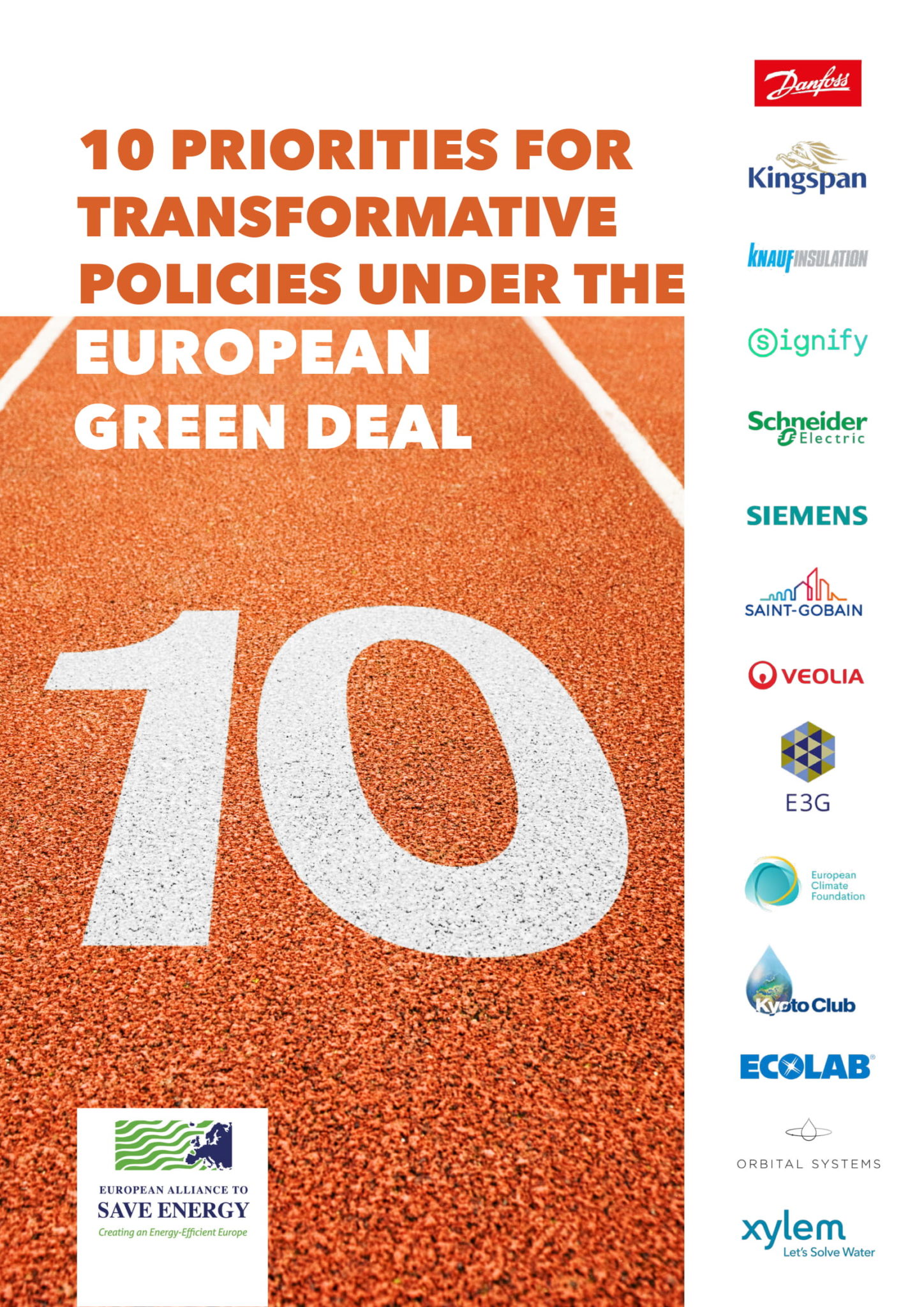The European Green Deal Communication acknowledges that in the effort to reduce GHG emissions and achieve climate neutrality by 2050, energy efficiency must be prioritised. At EUASE, we have set out 10 priorities to make sure that the policies under the EGD fully apply the Energy Efficiency First principle.
On December 11, the European Commission presented an outline of its European Green Deal. According to the proposed timeline, the increase of the EU 2030 climate target – the flagship initiative of the package – will be presented by summer 2020. This timeline will require Member States to agree on a much higher 2030 target at the European Council in June 2020, which will be key to enable the EU to lead the way towards bold climate ambition internationally.
The EGD Communication acknowledges that in the effort to reduce GHG emissions and achieve climate neutrality by 2050, energy efficiency must be prioritised, however the Communication lacks a specific reference to the Energy Efficiency First principle and the commitment to increase the 2030 energy efficiency target.
Here are our 10 priorities to make sure that the policies under the European Green Deal fully apply this principle:
- Accelerate the implementation of the Clean Energy Package by strengthening
and facilitating monitoring, evaluation and exchange of good practices - Reopen the Clean Energy Package in order to align it with increased ambition
by 2030 and climate neutrality by 2050 - Apply the energy efficiency first principle to all energy planning and
investments - Lead by example ensuring that 100% of public (central, regional and local)
buildings are nearly-zero energy (NZEB) by 2030 - Boost the renovation of existing residential and commercial buildings and
mobilize resources to eradicate energy poverty - Fully exploit water-energy nexus and introduce energy performance
objectives in all current and future water policies and regulations - Prioritize finance for energy efficiency in all EU funding programmes post
2020 and improve access to technical assistance - Remove all existing barriers to the full functioning of energy performance
contracting - Raise awareness about the multiple economic, social and environmental
benefits of energy efficiency for citizens, cities and businesses - Promote digitalization as a driver of greater efficiency
To read the full publication click on the link below.

